Focusrite Scarlett 2i2 Studio bundle review

An XLR microphone can be of serious benefit to any streamer, podcaster, or gamer. They offer tons of flexibility for mixing, which removes the awkward dance of software-based mixing programs, and can make it easy to record multiple microphones, or even instruments, all at once. There is a trade-off, of course, and it’s that XLR microphones often come at a premium compared to their USB counterparts.
It makes sense—you need more stuff with an XLR setup than a USB one. That includes an external interface, chunky XLR cables, and perhaps even a stand, as plenty of XLR condenser microphones don’t come with one.
That’s where Focusrite’s almost all-in-one package comes in. The Scarlett 2i2 Studio bundle aims to make the premium XLR upgrade upgrade a little easier, and perhaps cheaper too.
The Studio bundle includes (nearly) everything you need for a rock-solid XLR setup on your gaming PC: the Scarlett 2i2 3rd Gen Interface, a CM25 MkIII condenser microphone, a pair of HP60 MkIII closed-back headphones, one XLR cable, and a Type-C to Type-A USB cable to connect it to your PC. All neatly packed together and sold for $280 (£260).
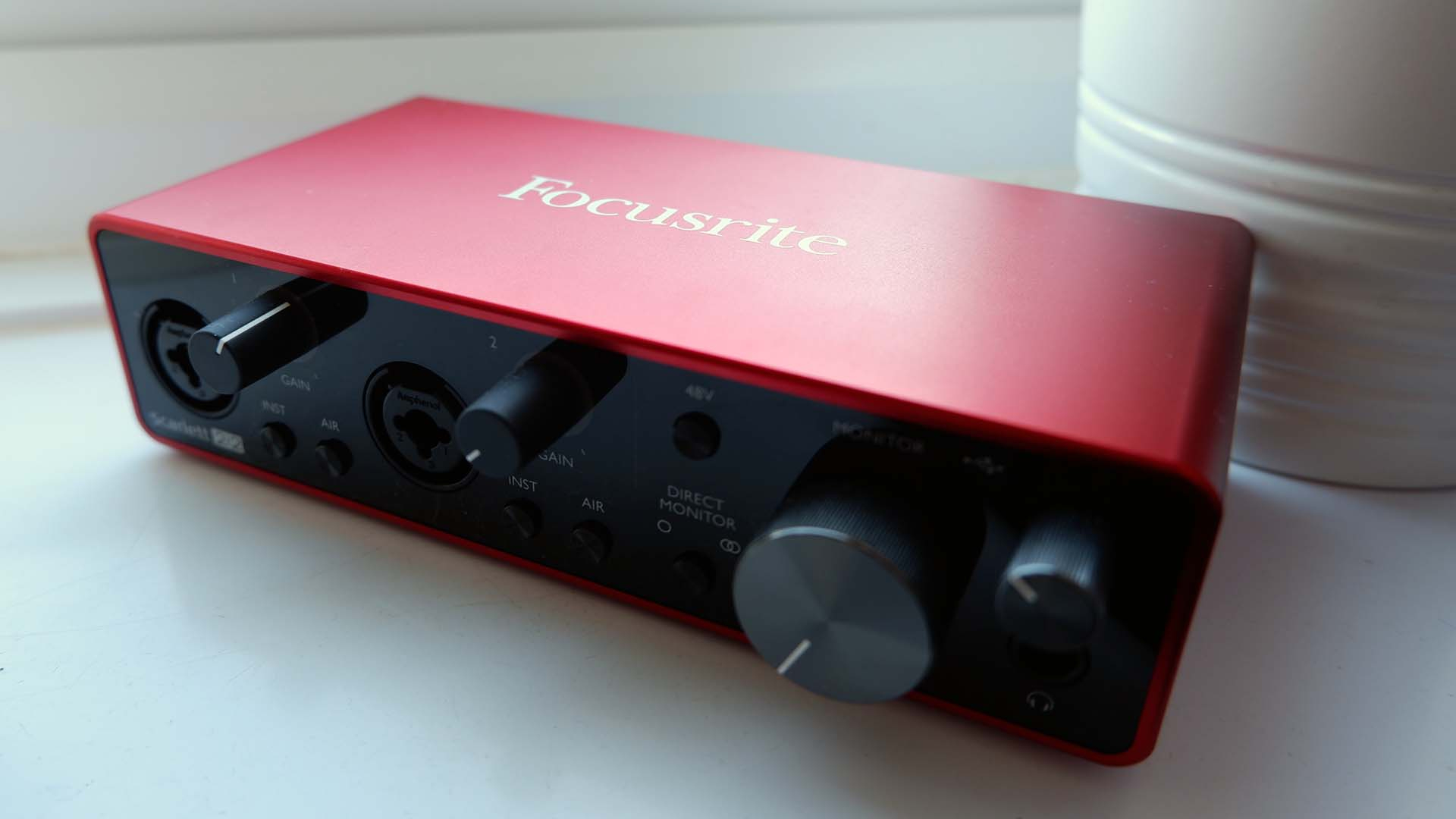
(Image credit: Future)
I/O: 2-in, 2-out
XLR/Instrument inputs: 2
Line outputs: 2
Phantom power: Yes
Headphone outputs: 1
Connectivity: USB Type-C
Power: USB Type-C
Price: $280 / £260 / €320 / Can$399
Focusrite isn’t some recording nobody, either. It’s a well-respected brand in professional audio with a legacy of quality products. From the its products I’ve experienced in the past, I can see why: they’re simple to operate yet technically effective for high-grade audio production.
That still holds true for the 3rd generation 2i2 included in the Studio bundle, which now runs entirely on a single USB Type-C to Type-A cable, even power. Its interface is brighter, cleaner, and more easily navigated than previous models, too.
The 2i2 is a twin-preamp design, meaning you can run two microphones through this single interface for an easy podcast setup. Each input offers individual gain control, which is handy if you have a loud friend on the other end of the mic, but also great if you want to hook up an instrument on one input and record your silky voice box on the other. There’s an INST switch for each input, which tweaks a couple of key specs for use with instruments, though what might be of greater interest to streamers and podcasters is the AIR switch.
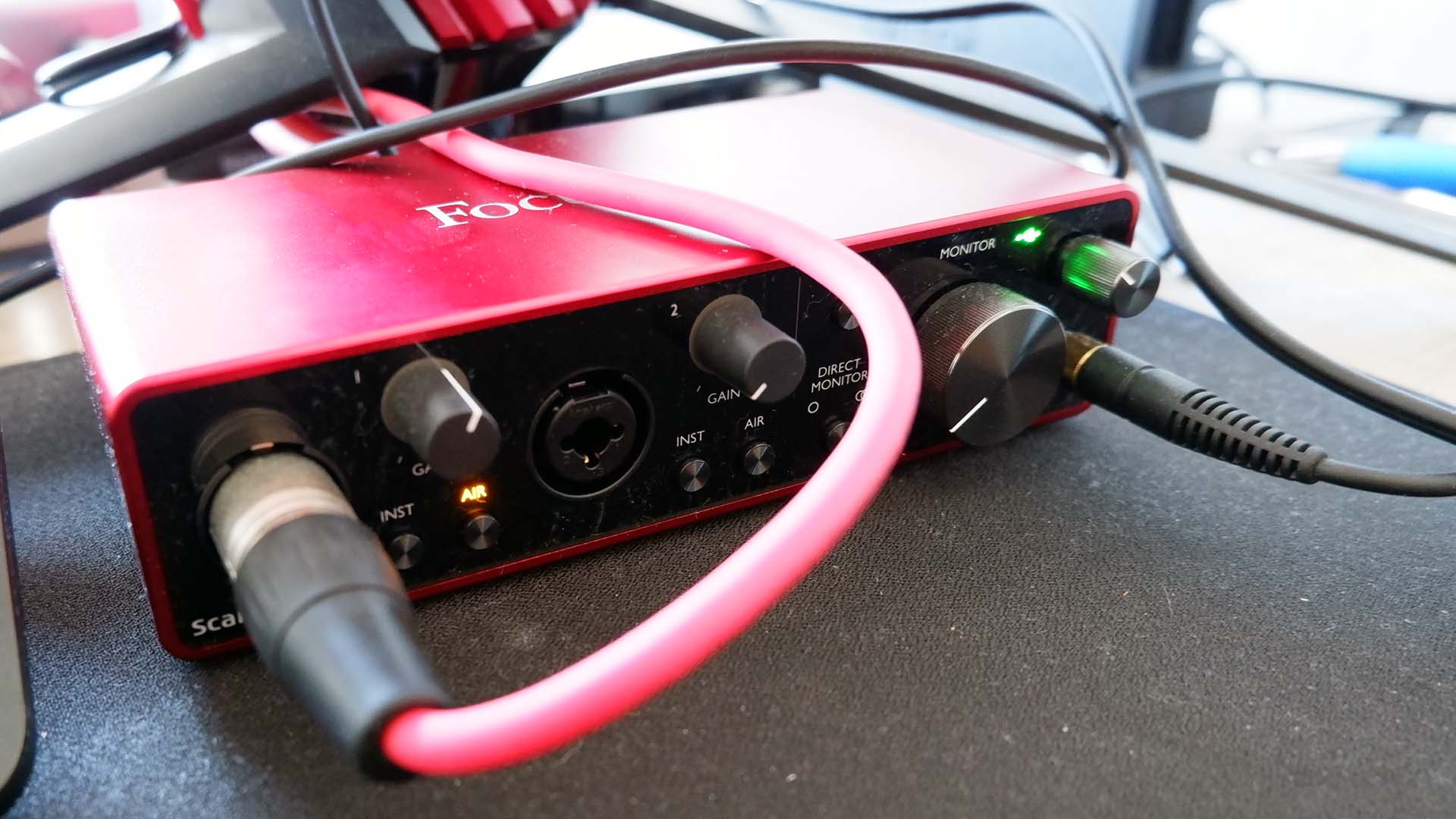
The Scarlett 2i2 in use. It is a bit of a dust magnet, but no more so than most. (Image credit: Future)
The AIR switch, once enabled, bolsters the high frequencies by recreating the ISA 110 mic preamp found on the Focusrite Studio Console. That might not mean much to you, but the end result is it helps your voice pop just that little bit more. I also find it helps with clarity in the final recording—listen for the difference yourself below.
Since AIR is an entirely analogue circuit, there’s no real downside to using it—AIR won’t interfere with the audio in any other way than it’s intended to. I definitely prefer it on, though, and the simplicity of having that little extra tweaking at the push of a button appeals to my desire to be less reliant on potentially complicated mixing software to sound good. And it really does sound good.
The 2i2 also delivers a great monitor mode, for one or both inputs, which has the benefit of being entirely hardware-based and cutting out any potential OBS or streaming feedback loops that can occur with PC-side monitors and desktop audio.
That touches on something pretty important for me when it comes to streaming audio setups: the less audio complexity while recording or streaming games on my PC, the better. An external interface turns the headache of trying to adjust monitor without impacting the entire stream or recording’s balance into a single dial.
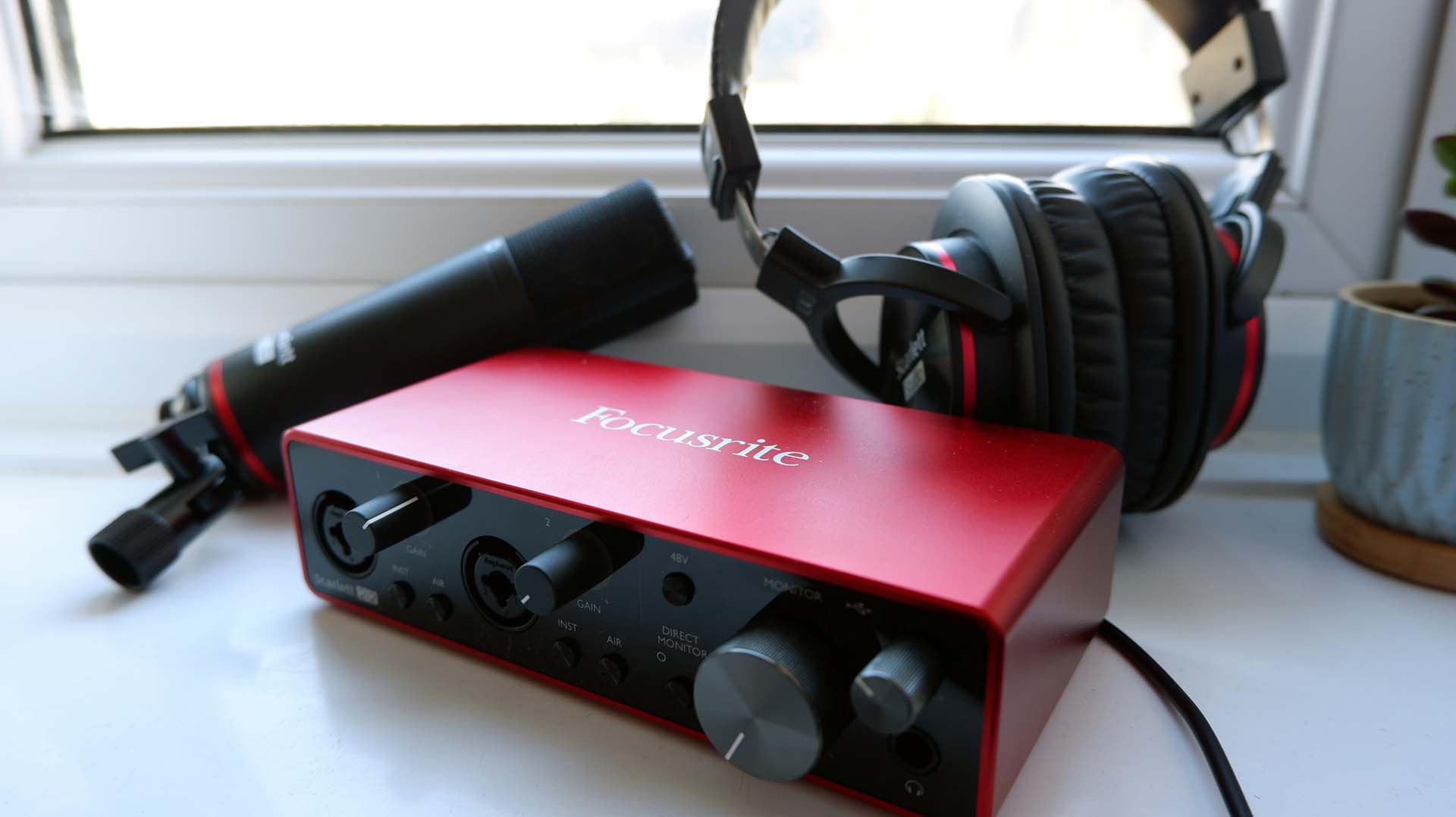
(Image credit: Future)
An external interface also makes short work of balancing multiple inputs, which leaves the only pain point balancing your game audio and Discord pals. One less thing to worry about ahead of a stream.
You don’t have to spend a whole lot more than your usual USB microphone and headset combo to reap the benefits of XLR
When it comes to the microphone quality, the CM25 MkIII is as much a great condenser microphone as you could want from a setup at this price. It’s simple, functional, and its all-metal construction gives me a lot of faith in its longevity. The tone is balanced and crisp, though you will need to be a little closer to the mic than you might otherwise with some popular USB microphones to get the tone you’re looking for. That might suit you well if you’re competing with ambient noise, though you might find you have to boost the gain a little higher than you’d like if you need to keep the mic further away from your face.
With no pop filter included, the closer you get to this mic the more you risk plosives causing peaks in your output. It’s a fairly easy issue to remedy—buy a cheap pop filter, turn down the gain, or move away from the mic—but will require a bit of finessing to get right when you first set it up.
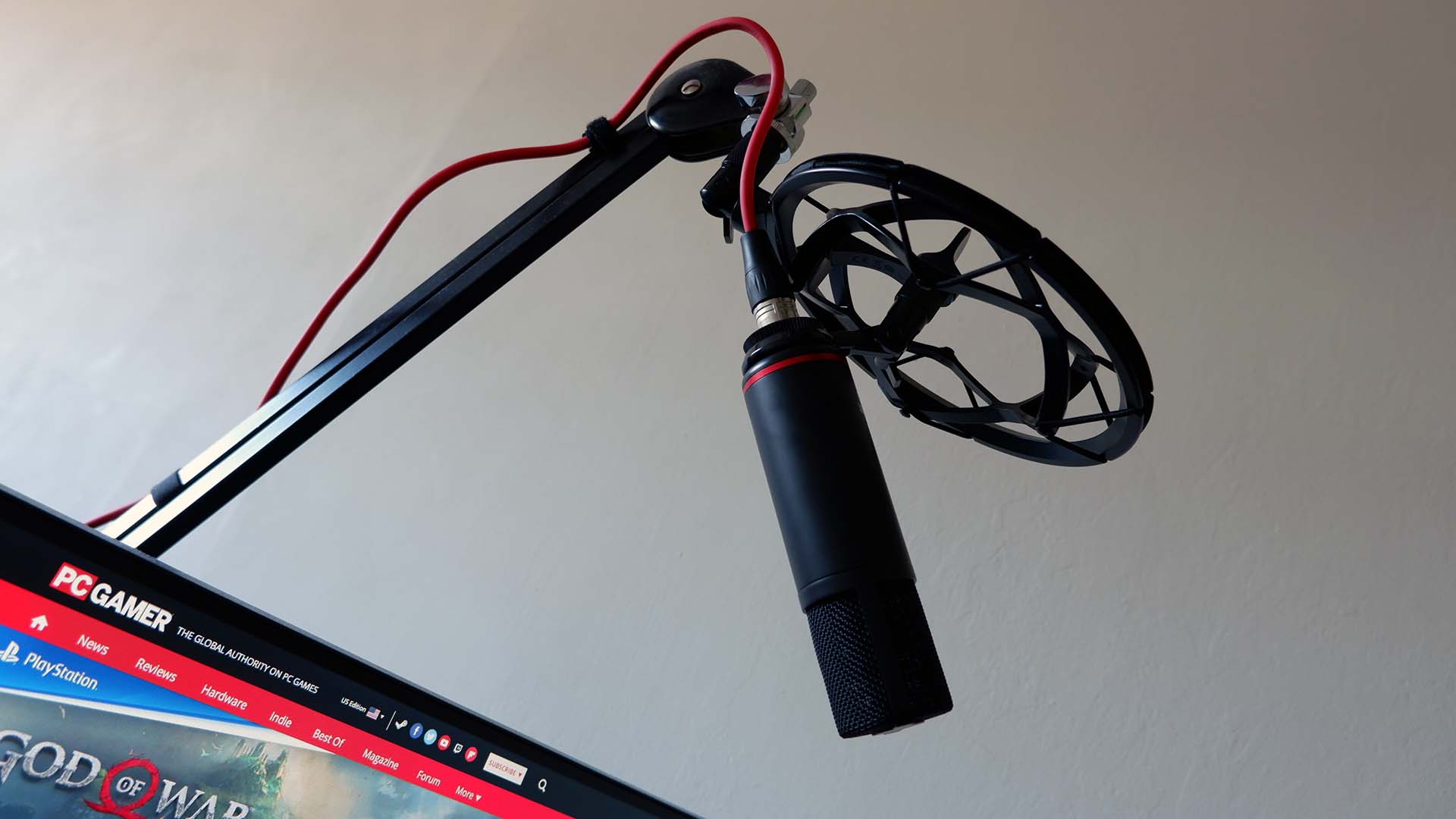
(Image credit: Future)
When I said the Studio bundle is nearly everything you need for a rock-solid XLR setup, what I meant was that there was one key thing missing: a stand for the microphone. It’s not much of a free-standing microphone either, so a stand or arm is absolutely required. So that’s another potential expense to get the microphone looking its Sunday best.
I would guess the thinking here is that a good many customers will ditch any included stand and attach the microphone onto an existing stand or arm. That’s exactly what I’ve done, in fact, screwing the CM25 directly onto my Rode PSA1 microphone arm. It is a snug fit, too, once the included threaded adapter is removed. For customers buying their first XLR setup, however, the omission of any sort of arm will mean the there’s a little more to spend over the Scarlett 2i2 studio bundle’s $280 price tag.
If you can find the Scarlett 2i2 Studio bundle for less than asking price, you can gobble up your savings to get a suitable stand and pop filter, at least. I have seen it drop to just £209 in the UK, though in the US it appears to more firmly stick around its MSRP.
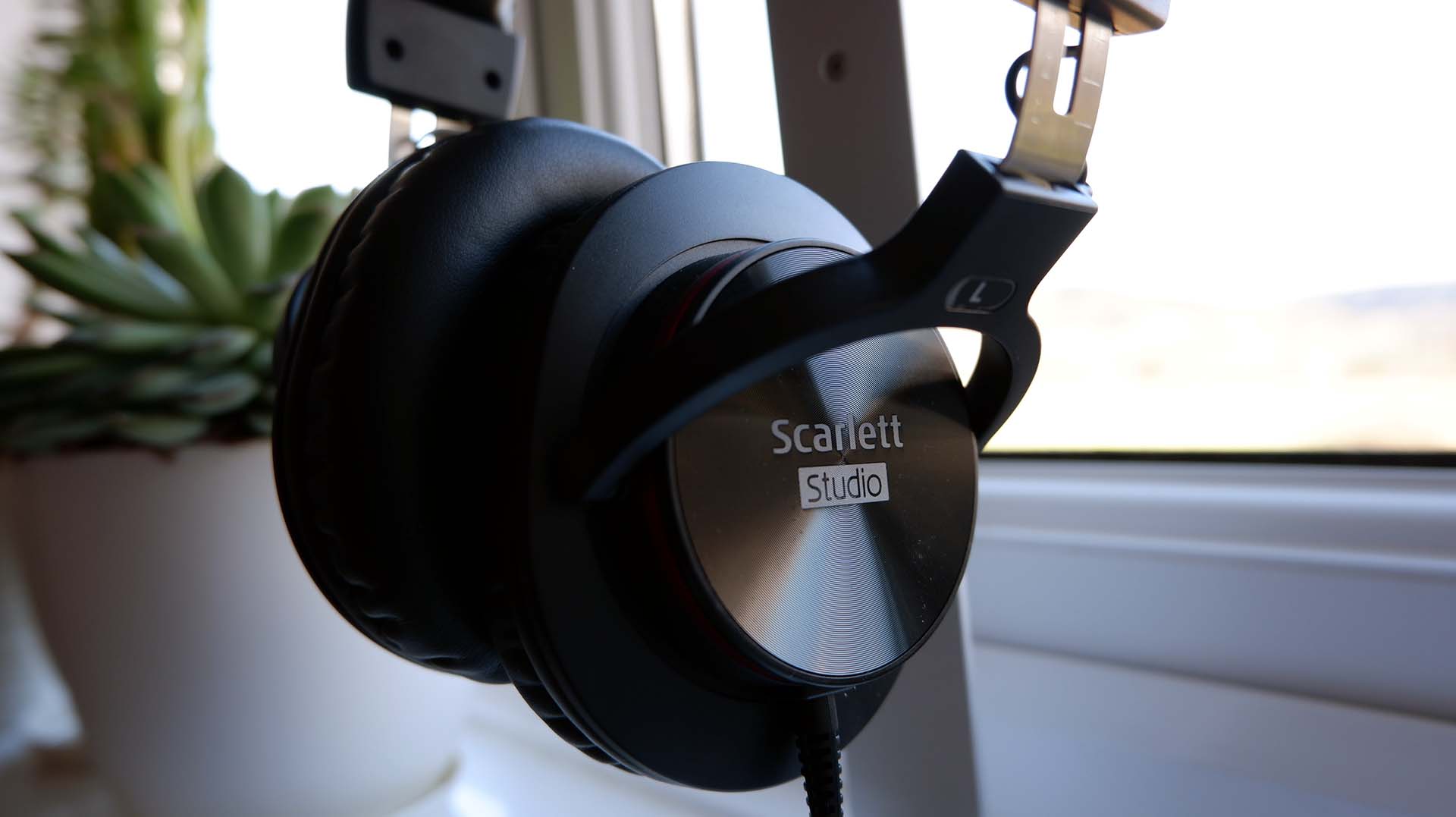
(Image credit: Future)
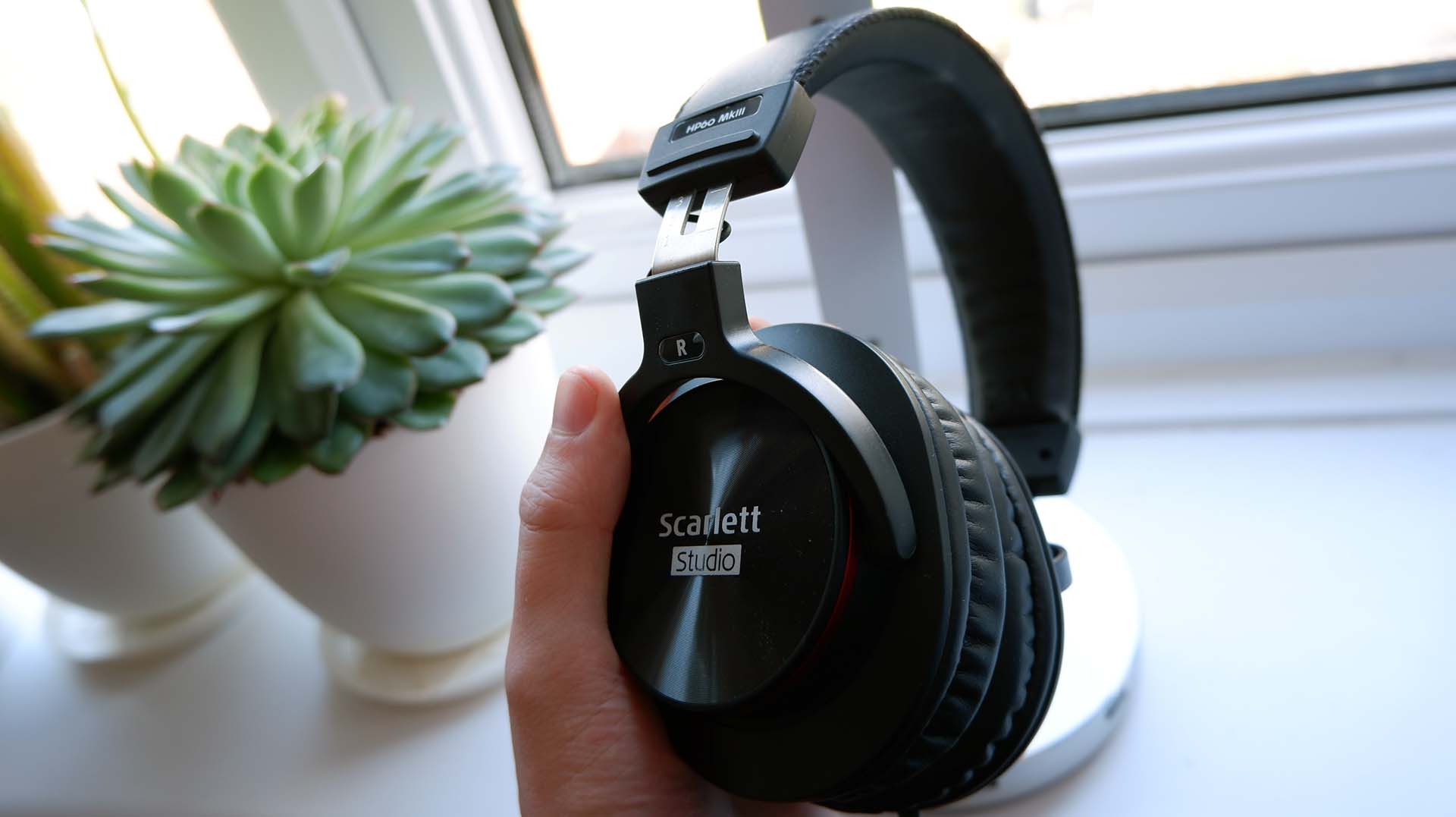
(Image credit: Future)
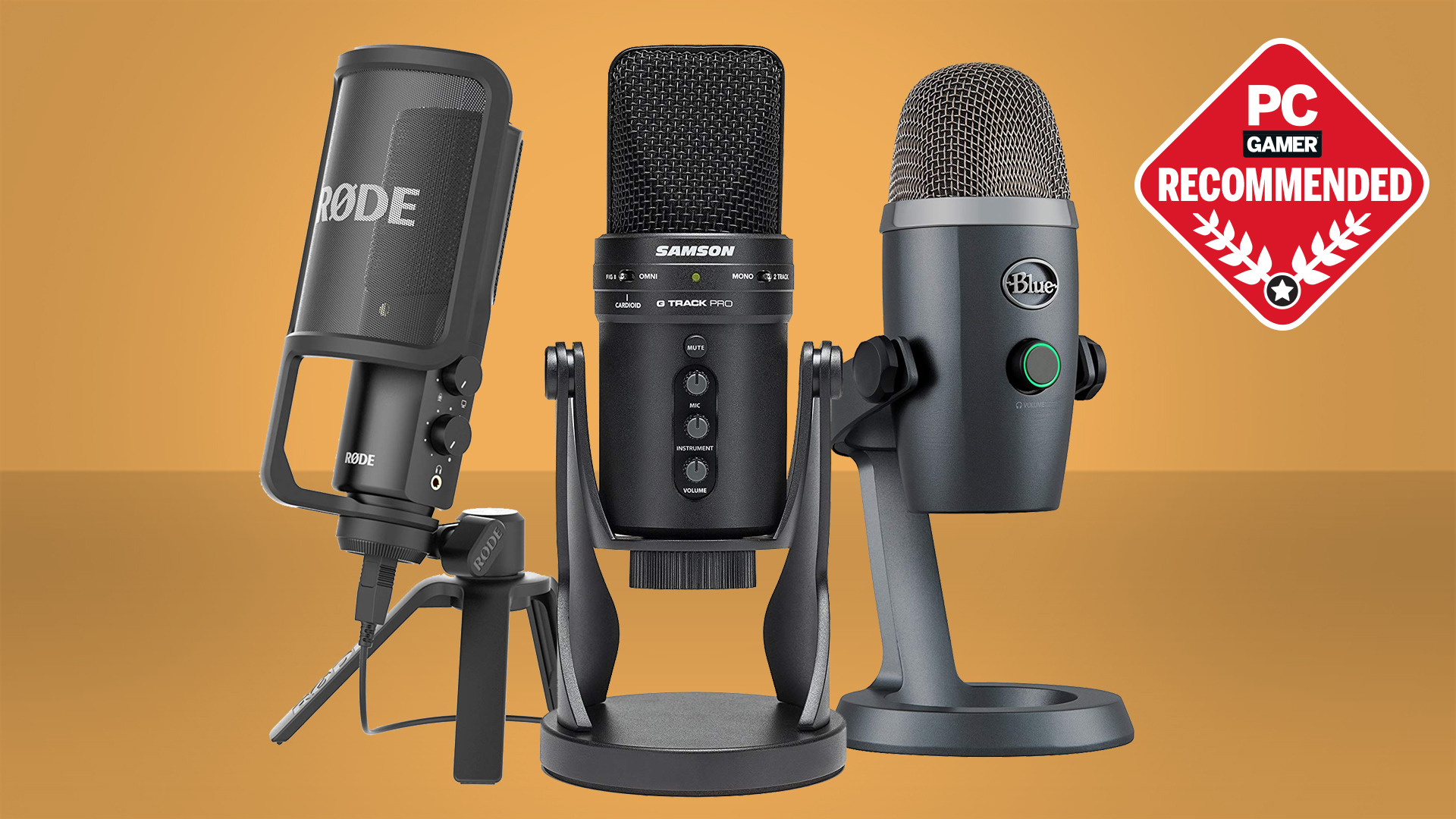
(Image credit: Rode, Samson, Blue)
Best microphone for gaming: make sure you’re heard
Best webcams: be seen while you get your stream on
Best capture cards: lessen the load with a dedicated card
At least there’s no added expense of a headset. The 2i2 Studio bundle has you covered there. The included headset is a decent pair of reference cans that deliver a fairly balanced, if a little muddy, soundscape. The closed-back design probably does no favours there. The overall design of the headphones isn’t the comfiest, which means arguably it’s my least favourite part of the Studio bundle, but no doubt these are suitably decent cans for gaming and more.
It’s tough to go wrong with a headset when you’re aiming only to hit the basics as Focusrite has here, though you may want to look to upgrade your earware down the line if you’re thinking about getting serious about your setup.
That said, there’s a whole lot to like about the Focusrite Scarlett 2i2 Studio bundle as a package altogether. Each component is worthy of its place and, as a value proposition, it’s highly competitive versus the competition from the likes of Rode and Shure. The quality is right up there, too, proving you don’t have to spend a whole lot more than your usual USB microphone and headset combo to reap the benefits of XLR.
It’s worth mentioning at the very end here that there is a $50 cheaper option should you wish to save a little cash: the Scarlett Solo Studio. It ditches one of the preamps meaning you can only plug in a single microphone or instrument, though it is available for $230.


Leave a Reply